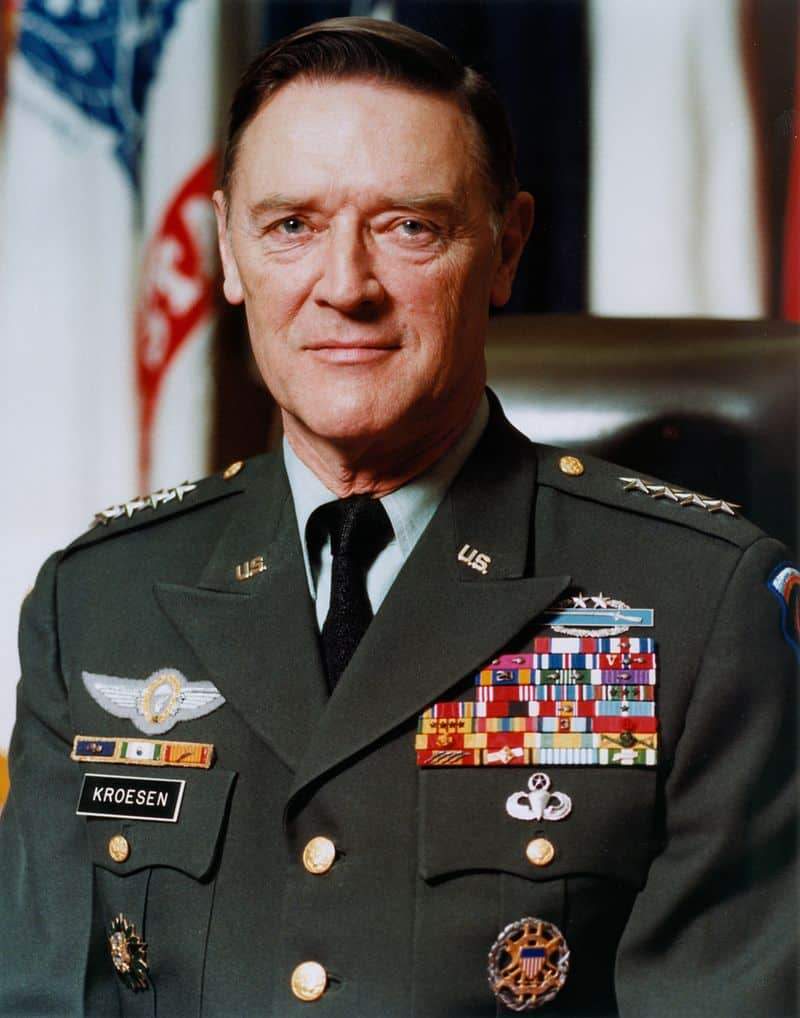Winning the Fight Takes Time and Vision
Wednesday, February 14, 2018
Categories: ASCF News National Preparedness Bipartisianship

Winning the Fight Takes Time and Vision
By Gen. Frederick J. Kroesen, U.S. Army retired
Events of the past year have caused me to think that I may not be immortal and that made me wonder whether I had discovered any ageless truths, indisputable principles or philosophical maxims that I would like to record. Hence, the following thoughts that might be the beginning of a to-be-extended list. Winning wars requires the defeat of enemy opposing forces, taking control of critical terrain, dominating the population and converting or establishing a native cooperating or friendly government. Success is achieved by identifying or defining the end result sought, a political objective that identifies the military mission. Time required for that determination may be spent committing existing forces to actions that prevent losing while forces adequate for winning are developed.
World War II provides the best example of how to win a war. The end result identified by President Franklin D. Roosevelt and British Prime Minister Winston Churchill was the "unconditional surrender" of the Axis Powers. The existing forces of Britain, Russia and later, the U.S., were committed to not losing until an adequate offensive force was built, principally the American Army and Navy, but also the "Arsenal of Democracy" that provided the wherewithal of the final offensive campaigns in Europe and the Far East. In both theaters the war was finally won when military government actions developed the friendly governments of Germany and Japan some five years after the cessation of hostilities.
Essential Elements
The air war, naval control of the seas, special operations, cyberwarriors, intelligence agencies, logisticians and functioning allies are all essential elements of the joint and combined operations that assure and expedite the success of the conclusive Army, and Marine combat operations that achieved the military objective. None of the other "essentials" can provide that final solution. That conclusion invites a counterobservation that the atomic bombs won World War II. I maintain they were contributing factors that caused an early cease-fire and armistice, but that the war was not won until the occupations were concluded.
Another example of a properly fought war was the First Gulf War, caused by Iraq attempting to conquer Kuwait. An early American and U.N. reaction resulted in a common countermission requirement, an immediate commitment of existing forces to prevent expansion of the Iraqi campaign followed by the time necessary to form the forces and resources that brought a successful completion of the job in only 100 hours after the land-power forces were committed.
There are cases when existing forces are sufficient to complete a conquest. The invasion of Grenada and the intended entry into Haiti are examples. And there are examples of when we did it wrong. The Korean War is one in which the ultimate objective was not apparent initially, and was accepted as a stalemate after the Chinese entered the fray. Our rapidly rebuilt Army proved sufficient for achieving that end, but settling for less has been a long and expensive cost.
The Vietnam War is another in which the ultimate objective was never clear and the buildup of the forces needed was questioned, impeded and piecemealed into the commitment over time that allowed an erosion of public support to blanket any claims to successes on the battlefield. We spent months in the Pentagon preparing plans to respond to requests for forces from Military Assistance Command, Vietnam, and more months to reorganize and activate new units to replace the Reserve component units we were not allowed to mobilize.
It took three years to go from 950,000 in the active Army to 1.5 million, about the same time required in 1942 to go from 150,000 to 8 million. We settled for less again, this time resulting in a disastrous outcome for the nation we had been committed to help.
In summary, any president, secretary of defense or chairman of the Joint Chiefs considering employment of military power must provide an understanding of the ultimate objective to be achieved. If it is a war-winning requirement he must plan to employ the Army, he must be satisfied with first preventing a loss, then allow time and provide the resources required to build a force capable of winning.
Or he may commit to punishing the enemy with air or missile strikes, with special operations, diplomatic pressures and economic sanctions in hope that the enemy will abandon its intents before we do, a practice we are pursuing in the Middle East.
Gen. Frederick J. Kroesen, USA Ret., served as vice chief of staff of the US. Army and commander in chief of U.S. Army Europe. He is a senior fellow of the Association of the U.S. Army's Institute of Land Warfare











